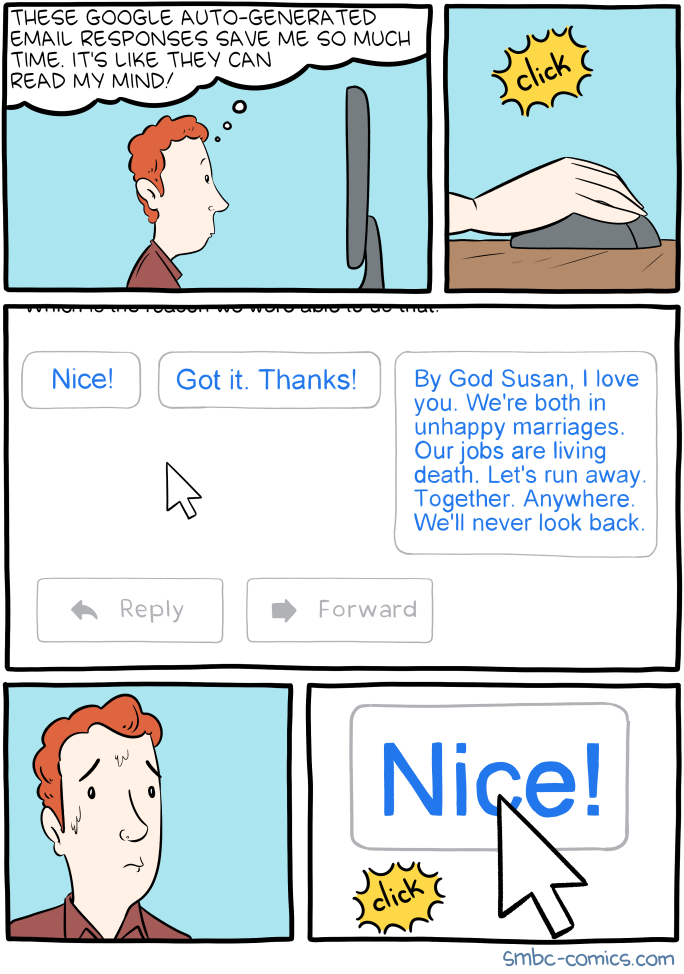"Human parity" in machine translation
In May of 2015, I gave a talk at the Centre Cournot in Paris on the topic "Why Human Language Technology (almost) works", starting with a list of notable successes, including how well Google and Bing on-line translation did on the Centre Cournot's web site. But my theme required a few failures as well, and I found a spectacular set of examples when I tried a chapter-opening from a roman policier that I was reading (Yasmina Khadra, Le Dingue au Bistouri):
Il y a quatre choses que je déteste. Un: qu'on boive dans mon verre. Deux: qu'on se mouche dans un restaurant. Trois: qu'on me pose un lapin.
Google Translate: There are four things I hate. A: we drink in my glass. Two: we will fly in a restaurant. Three: I get asked a rabbit.
Bing Translate: There are four things that I hate. One: that one drink in my glass. Two: what we fly in a restaurant. Three: only asked me a rabbit.
Should be: There are four things I hate. One: that somebody drinks from my glass. Two: that somebody blows their nose in a restaurant. Three: that somebody stands me up.
Read the rest of this entry »




